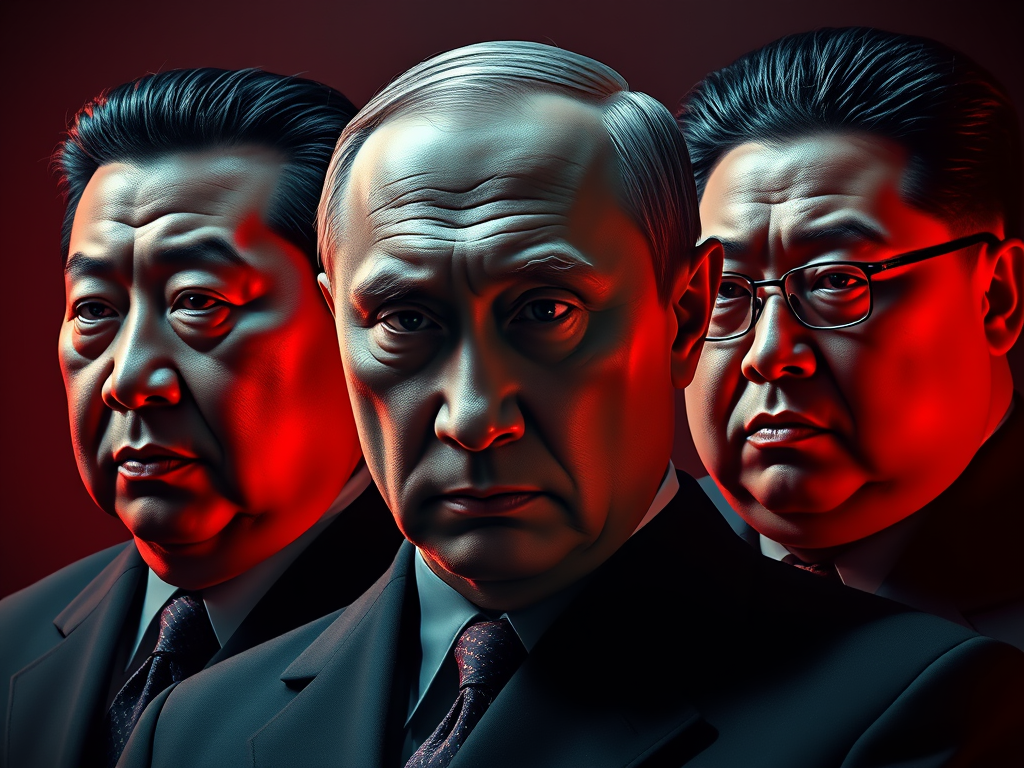Upon opening the morning newspaper or refreshing an online news site, it isn’t unusual to be met with bold headlines proclaiming the latest political accusations. “Trump Accuses Putin, Xi, Kim of Plotting Against US Following China’s Military Display” – such a headline doesn’t just reflect the undercurrents of international politics, but also shapes the narratives that define global relations.
In the past, this kind of bold accusation would typically unfold behind closed doors, whispered in hushed tones among policymakers and key leaders. Yet, we find ourselves in a digital era where such accusations can be made blatantly in public, swaying public opinion and sending shock waves across nations.
President Donald Trump’s accusation against Russia’s Vladimir Putin, China’s Xi Jinping, and North Korea’s Kim Jong-un represents more than just an eruption of suspicion. It signifies heightened tension and mistrust among world’s superpowers, and a decoding of this dramatic event yields insights on multiple fronts.
First and foremost, this accusation came in a post-gunpowder era where conflicts are less about territorial invasions and more about winning battles in cyberspace and information warfares. This highlights the growing importance of cyber security as an essential element of national defense. Pointing fingers at other world leaders indicates an increased paranoia, reflective of the existing volatility in international relations.
Second, such a statement from Trump echoes a crucial aspect of his foreign policy approach, which can be described as ‘unconventional’ at the very least. Notoriously unpredictable, his tactics have often been seen as radical departures from traditional diplomacy. Whether these strategies bear fruit or backfire, they undeniably keep the spotlight on the United States, shaping international conversations.
Third, this scenario reminds us of the delicate, intricate web of international relations and the central role of the United States. The accusation against Putin, Xi, and Kim at once reflects the power dynamics in global politics, provides a glimpse into the precarity of peaceful co-existence, and underscores how easily stability can be disturbed.
The whole episode also brought up questions about evidence to justify such severe accusations. In an era widely characterized as ‘post-truth’, where misinformation can spread in the blink of an eye, it becomes critical to establish the credibility of such claims by elucidating the evidence that supports them. Without proper backing, such assertions risk stirring unnecessary fear and skepticism among nations.
Trump’s accusation serves as a reminder of the deep-rooted suspicion and strategic competition among countries, even those who put up a façade of cordial relations. This amplifies the need for diplomatic tools for conflict resolution and calls for nations to prioritize dialogue over blame games.
In conclusion, such accusations, irrespective of their veracity, inevitably impact international relations, creating ripples that can tip the balance of global power dynamics. In the end, the art of managing global politics perhaps lies not in leveling accusations, but in navigating the resulting consequences and in shaping diplomatic strategies that foster peace and cooperation.





